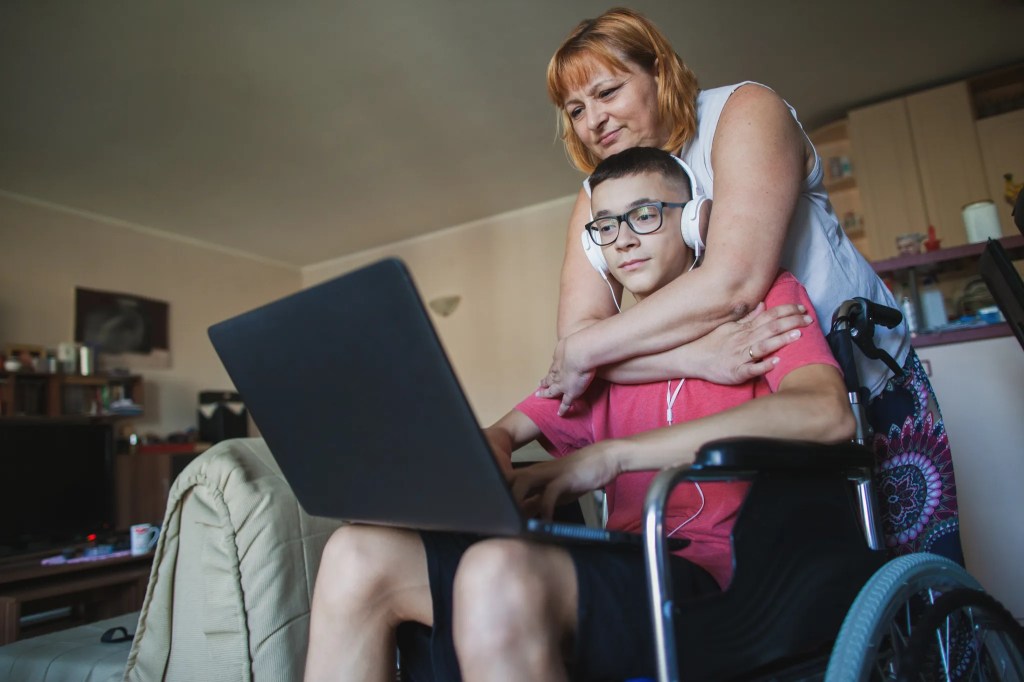
5 Great Holiday Nutritional Tips for Loved Ones with Complicated Medical Conditions
For many of us, the holiday season is a time of celebration, reconnecting with friends and family, and eating lots of delicious food. But for people with medical conditions that place restrictions on what they’re able to eat, the holidays can be a difficult time to stay on track.
At Caregiver Homes, teams of nurses and social workers provide around-the-clock coaching and support for families who are looking after ill or disabled loved ones at home. These Care Teams collaborate with family caregivers to create realistic plans for healthy eating.
Yvonne is a medically complex individual whose son, her full-time caregiver, is enrolled in Caregiver Homes’ program. For two years, she struggled to manage her weight while being at high-risk for cardiac arrest and other conditions. Yvonne and her son met with a nutritionist to learn about the risks of not adopting a healthier lifestyle, and together, they began working as a team to make healthy choices. She has since seen health improvements and weight loss. Yvonne’s son makes her meals and helps her to practice portion control. The holidays can still pose temptations for her, so it’s important for both of them to plan ahead.
Here are some tips for family caregivers to help their loved ones make good nutritional choices over the holidays:
- Empower loved ones to feel comfortable declining certain foods. Sometimes it can feel rude to turn down a beautiful meal or dessert. Let your the person you care for know it’s okay to politely say, “No thank you. I’m trying to eat healthy.” Remind loved ones to look beyond momentary gratification of high-sugar or high-fat foods that might make them feel sick later.
- Give the host a heads up about nutritional considerations. A good host will appreciate you letting them know if your loved one has any diet restrictions.
- Consider bringing your own food. If you’re going to a party or a family gathering, consider bringing healthy food. Be sure not to isolate the person you’re caring for, and encourage everyone to share the healthy options you’ve brought.
- Encourage portion control. If their diet permits, it may be okay for medically complex loved ones to have a few bites of their favorite dessert. The key is to know your limits, listen to your body, and stop eating when you are full.
- Lean on your support system. For people with chronic condition or disabilities, it’s easier to follow through on new habits when there is a care team and caregiver who understand their goals and want to see them succeed. Yvonne really benefits from having her son support her efforts to eat better.
There are many strategies that allow people to enjoy the holidays while maintaining good nutrition. By setting goals, staying motivated, and planning ahead, you can ensure your loved ones maintain healthy eating habits this season.
Need help caring for a loved one with a chronic condition or a disability? Learn more about Seniorlink’s support program for caregivers of Medicaid-eligible friends and family members.
More insights like this:
-

Balancing Back-to-School Routines While Caring for Aging Parents: 5 Practical Tips for the Sandwich Generation
Read more: Balancing Back-to-School Routines While Caring for Aging Parents: 5 Practical Tips for the Sandwich GenerationAs summer comes to a close and back-to-school season ramps up, family caregivers in the Sandwich Generation—those juggling the responsibilities of raising children while also caring for aging parents—find themselves facing a unique set of challenges. It’s a busy time filled with transitions, paperwork, and new routines. The stress and pressure can feel…
-

Maintaining Your Own Life While Being a Family Caregiver
Read more: Maintaining Your Own Life While Being a Family CaregiverCaregiving is often a 24/7/365 role. It’s incredibly important, but it can be challenging, rewarding, and requires a lot of selflessness. Depending on what their loved one needs, caregivers often handle detailed and mentally challenging tasks. These responsibilities can take a significant toll on a caregiver’s physical, emotional, and mental well-being. Caregivers are often…
-

Caring For Your Child With Disabilities
Read more: Caring For Your Child With DisabilitiesAccording to AARP’s Caregiving in the U.S. 2020 Report, 14.1 million caregivers provide care for children ages 0-17. In addition, one-in-ten parents in the U.S. provide over two and a half hours of unpaid care a day to an adult child. That’s a lot of care. A lot of dedication. And a lot…